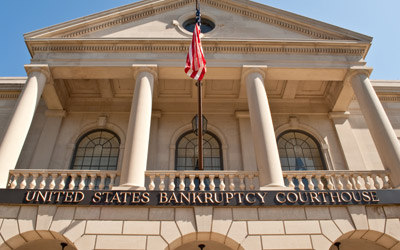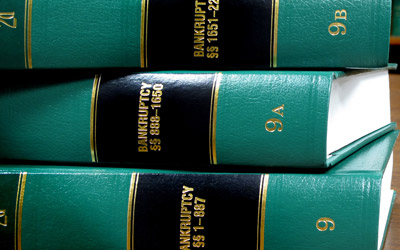FAQ'S
Chapter 7 Info Guide
1. What is a Chapter 7 bankruptcy?
A Chapter 7 bankruptcy,is often referred to as “liquidation,”and it contemplates an orderly, court‑supervised procedure by which a trustee takes over the assets of the debtor’s estate,reduces them to cash, and makes distributions to creditors, subject to the debtor’s right to retain certain exempt property and the rights of secured creditors.
In most Chapter 7 cases, if the debtor is an individual, he or she receives a discharge that releases him or her from personal liability for certain dischargeable debts. The debtor normally receives a discharge just a few months after the petition is filed.
Filing a Chapter 7 petition “automatically stays” (stops) most collection actions against debtors or their property. As long as the automatic stay is in effect, creditors generally may not initiate or continue lawsuits, wage garnishments, or demand payment. However, there are a number of exceptions to the automatic stay (a criminal proceeding, for example), and in some instances the automatic stay may only be in place for a short period of time.
Chapter 7 may be filed without an attorney, but it is a complicated process and it is highly recommended that you retain the services of an attorney. Your failure to meet all of the requirements of a Chapter 7 can result in a loss of protection of the automatic stay, or a dismissal of the case.
2. What do I need to do before filing a Chapter 7 case?
Before filing a Chapter 7 case, you must obtain credit counseling from an approved credit counseling agency. (11 U.S.C. § 109). The debtor must receive credit counseling within the 180 days before the bankruptcy petition is filed. If you and your spouse file a joint bankruptcy petition, both of you must obtain credit counseling. Credit counseling may be conducted over the phone, over the internet or in person. When you complete credit counseling, the agency will provide you with a credit counseling certificate. This certificate must be filed with the court when the petition is filed.
3. Am I eligible to file a Chapter 7 case?
A debtor must complete Official Form B22A ‑ Statement of Current Monthly Income and Means Test Calculation. (Commonly referred to as the Means Test) To be eligible to file a Chapter 7 case, your current monthly income, as calculated on Official Form B22A, may not be higher than the state median income. If your current monthly income is higher than the state median income, it is determined that you could repay a level of unsecured debt and the filing of a Chapter 13 case may be appropriate. If you still choose to file a Chapter 7 case, then it is presumed that the filing is an abuse of the Chapter 7 process.
4. Where should I file my petition?
The petition and all documents relating to the bankruptcy case must be filed at the Bankruptcy Court Clerk’s Office located in the geographic area (commonly referred to as “vicinage”) in which the debtor resides, or in which the debtor has its principal place of business.
The Bankruptcy Court for the District of New Jersey is divided by county into three vicinages:
The Camden vicinage consists of Atlantic, Camden, Cape May, Cumberland, Gloucester and Salem counties and part of Burlington (the townships of Cinnaminson, Delran, Edgewater Park, Evesham Marlton, Maple Shade, Moorestown, Mt. Laurel, Palmyra, Riverside and Riverton).
The Newark vicinage consists of Bergen, Essex, Hudson, Morris, Passaic, Sussex and Union counties.
The Trenton vicinage consists of Hunterdon, Mercer, Middlesex, Monmouth, Ocean, Somerset and Warren counties and part of Burlington (excluded are the townships of Cinnaminson, Delran, Edgewater Park, Evesham, Marlton, Maple Shade, Moorestown, Mt.
Laurel, Palmyra, Riverside and Riverton).
CAMDEN NEWARK TRENTON
Mailing Address
US Post Office & Courthouse
P.O. Box 2067
Camden, NJ 08101‑2067
Martin Luther King Jr.
Federal Building
P.O. Box 1352
Newark, NJ 07101‑1352
Clarkson S. Fisher U.S.
Courthouse
402 East State Street
Trenton, NJ 08608
5. What filing fee do I have to pay?
The filing fee for a Chapter 7 petition is $299. The Court does not accept cash or personal checks. The fee may be paid by money order, certified check, or bank check payable to the Clerk, United States Bankruptcy Court. If the full filing fee cannot be paid at the time the petition is filed, Chapter 7 debtors may apply for an installment schedule or a waiver of the fee.
6. What forms do I have to file for a Chapter 7 case?
There are about fifty different forms that you have to file for a Chapter 7 case. The amount of forms that are required is mind numbing. After the law change in 2005, it is now virtually impossible for an individual person to file a bankruptcy on a pro se basis. Bankruptcy is serious business, and you need an experienced legal professional to represent you. If you only hire a petitioner preparer then there is a very good chance that your bankruptcy will turn into a disaster.
7. What happens if I do not file all of the required forms?
Failure to file all required documents at the time the petition is filed will result in the issuance of a Deficiency Notice. This notice advises debtors that they have 15 days from the date the petition is filed to submit all required documents or the bankruptcy case will be dismissed without further notice. Debtors may request an extension of the 15-day deadline by application to the court.
8. What happens after I file?
Shortly after the petition is filed, the United States Trustee appoints a trustee and the court will issue a Notice of Chapter 7 Bankruptcy Case, Meeting of Creditors & Deadlines. This notice is sent to all creditors in the case and contains the following information:
- Debtor’s name
- Date/time/location of the First Meeting of Creditors (also known as 341 Meeting)
- Deadline to file a complaint objecting to discharge or dischargeability of debts
- Deadline to object to exemptions
Note: Please read the notice carefully. The meeting may not be held in the courthouse, but may be held at another location.
9. What is the role of the trustee in my case?
The trustee is appointed by the United States Trustee to administer the case. The primary functions of the trustee are to examine the assets of your estate, if any, liquidate non‑exempt assets, and serve as the disbursing agent to the creditors. The trustee technically becomes the temporary owner of all of your non‑exempt property. Your creditors are paid by selling nonexempt property of your estate. If there are no non‑exempt assets in your estate, the case is referred to as a “no asset” case. Creditors do not need to file a proof of claim in a no asset case. Creditors must file a proof of claim if assets are later recovered.
10. What is the First Meeting of Creditors, and how do I prepare for the meeting?
All debtors MUST attend the First Meeting of Creditors. Failure to attend may result in the dismissal of your case. If you and your spouse filed a joint petition, both of you must appear. At the meeting, the Chapter 7 trustee will ask you questions, under oath, about what you owe, what you own and your income.
No later than seven (7) days before the Meeting of Creditors, you must send the following to the trustee:
- A copy of your most recent federal income tax return (or transcript of return).
- Copies of pay stubs received within 60 days before the date of filing of the petition.
Note: DO NOT FILE PAY STUBS OR INCOME TAX RETURNS WITH THE
COURT. Remember, it is the sole responsibility of the debtor to delete or black out sensitive information such as children’s names, account numbers (except the last 4 digits), and dates of birth(except the year). You should only show the last 4 digits of your social security number.
Bring the following with you to the First Meeting of Creditors:
- Picture Identification
- Proof of social security number
- Market analysis of any real estate you own
11. After I file, what happens to my creditors’ collection activities against me?
Once the petition is filed with the court, the automatic stay will go into effect. The automatic stay is an injunction that automatically stops lawsuits, foreclosure, garnishments and all collection activity against you by your creditors for any debt which arose before the filing of the bankruptcy.
Note: There are exceptions which may result in the automatic stay not going into effect, or being limited in duration.
Some exceptions, but not all, are listed below:
- Debtor had a previous case pending within the preceding one‑year period, but the case was dismissed. In this situation, the automatic stay would terminate on the 30th day after filing the new case, unless the debtor applies for an extension of the automatic stay.
- Debtor had more than one previous case pending within the preceding one‑year period, but the cases were dismissed. In this situation, the automatic stay does not go into effect unless the debtor applies for imposition of the stay.
A creditor may file a Motion to Lift the Automatic Stay, which is a request by a creditor that, if granted, would allow the creditor to collect a debt against a debtor or the debtor’s property that would otherwise be prohibited by the automatic stay.
12. How do I amend my schedules after filing?
You may need to amend your original schedules filed with the petition. See, D. N.J. LBR 1009‑1. Click for the amendment forms Amendment to Schedules D, E, F or List of Creditors.
The addition of new creditors requires a new creditor matrix containing only those creditors being added. There is a fee of $26 to amend Schedules D, E, or F.
There is no fee if Schedules D, E, or F is amended to add the address of a listed creditor, or to add the name and/or address of an attorney for a listed creditor. The court will issue and serve an Order Respecting Amendment.
13. What is a discharge and how do I receive my discharge?
A discharge releases a debtor from personal liability of certain debts known as dischargeable debts and prevents the creditors owed those debts from taking any action against the debtor or the debtor’s property to collect the debts. The discharge also prohibits creditors from communicating with the debtor regarding the debt, including telephone calls, letters, and personal contact.
The debtor is eligible for a discharge usually between 60 and 90 days after the Meeting of Creditors, as long as you:
- certify (if applicable) that all domestic support obligations have been paid.
- have not received a discharge in a Chapter 7 or 11 case within eight (8) years of the new case.
- have not received a discharge in a Chapter 12 or 13 case within six (6) years of the new case.
- do not have a complaint against you which objects to the discharge or the dischargeability of a debt.
- have completed the Personal Financial Management course (Debtor Education) and filed Official Form 23 ‑ Debtor’s Certification of Completion of Instructional Course Concerning Personal Financial Management.
Note: When a new Chapter 7 case is filed, and a discharge was entered in a Chapter 12 or 13 case filed within the previous six (6) years, the court may not withhold the debtor’s discharge. However, creditors and parties in interest may file a complaint objecting to discharge under §727(a)(9).
Every debt is not discharged. There are exceptions to the discharge, which include, but are not limited to:
- debts for alimony and child support
- most student loans
- debts arising from death or personal injury caused by driving while intoxicated or under the influence of drugs
- debts for criminal fines or restitution.
NOTE: Once a debt is discharged, you are legally free of that debt. The discharge is a permanent order that prohibits creditors from taking any type of collection action on discharged debts. Any attempt to collect discharged debt is prohibited by bankruptcy law.
For your own protection, you should maintain accurate records and copies of all matters related to your bankruptcy. In addition, you should routinely check your credit report with the various reporting agencies to ensure that discharged debts are not being reported as outstanding.
14. What is the Personal Financial Management Course (Debtor Education)?
Debtors are required to complete an instructional course in personal financial management as a condition for receiving a discharge. This course is in addition to the credit counseling requirement. When the personal financial management course is completed, the debtor must file Official Form 23 ‑ Debtor’s Certification of Completion of Instructional Course Concerning Personal Financial Management.
If you and your spouse filed a joint petition, both of you must attend the course and both of you must file an Official Form 23. Official Form 23 should NOT be filed when you file the petition. It must be filed within 45 days of the first date set for the Meeting of Creditors. If Official Form 23 is not filed, the court may close the case without a discharge.
If you then file a motion to reopen the case to allow the filing of Official Form 23, you must pay the full filing fee due for filing such a motion. There are limited exceptions to the personal financial management course requirement such as incapacity or disability (defined in 11 U.S.C. §109(h)) or active military duty in a military combat zone. You must make the appropriate selection on Official Form 23 and file a Request for Exemption from Financial Management.
15. Can I keep certain secured property such as my car?
If you would like to keep certain property, such as a car, you may “reaffirm” your debt. A reaffirmation is an agreement between you and the creditor that you are liable and will pay all or a portion of the money owed, even though the debt would otherwise be discharged in the case. In return, the creditor promises not to repossess or take back the car or other property as long as Reaffirmation of a debt must be done before the discharge is entered in the case. The reaffirmation agreement must be signed and filed with the court and the judge will decide if the reaffirmation agreement is approved. The court must find that the reaffirmation does not impose undue hardship on you or your dependents and that it is in your best interest. Reaffirmation agreements are voluntary. If you agree to reaffirm a debt and fail to make the payment required, the creditor can take action against you to recover any property and you may remain personally liable for any remaining debt that you have reaffirmed.
16. Has the Bankruptcy Abuse Prevention and Consumer Protection Act of 2005 stopped debtors from filing from bankruptcy?
No, BAPCPA has not stopped hard working Americans from filing from bankruptcy. BAPCPA is arguably the most deceptive laws that have been passed in recent years. This law was touted as protecting consumers. However, this law only protects the credit card industry. The main goal of this law was to make it much hard for the average consumer to file for bankruptcy and to punish bankruptcy attorneys.
The main theme behind the BAPCPA laws is that only deadbeats file for bankruptcy and that only shyster lawyers represent people who file for bankruptcy. The credit card companies took the mantra that debtors were looking for the easy way out and wanted to beat the system and not pay. However, this premise does not take into consideration the record high unemployment rates, the massive pay cuts that many Americans are forced to take, and the increase in the cost of living. Even though it is harder to file for bankruptcy, the BAPCPA has had little effect on the number of filings. However, there have been more chapter 13 filings. In summary you are not alone if you need the protection of the US bankruptcy code. There are thousands of people living in New Jersey who have sought the protection of our bankruptcy courts. I am fully aware that you if want to pay your bills, but you simply don’t have a money making machine to pay your bills. I am fully aware that you are a good person and that you simply need some help to get through your financial crisis. Well, I can help you get some breathing room, and and help you take control of your finances.






